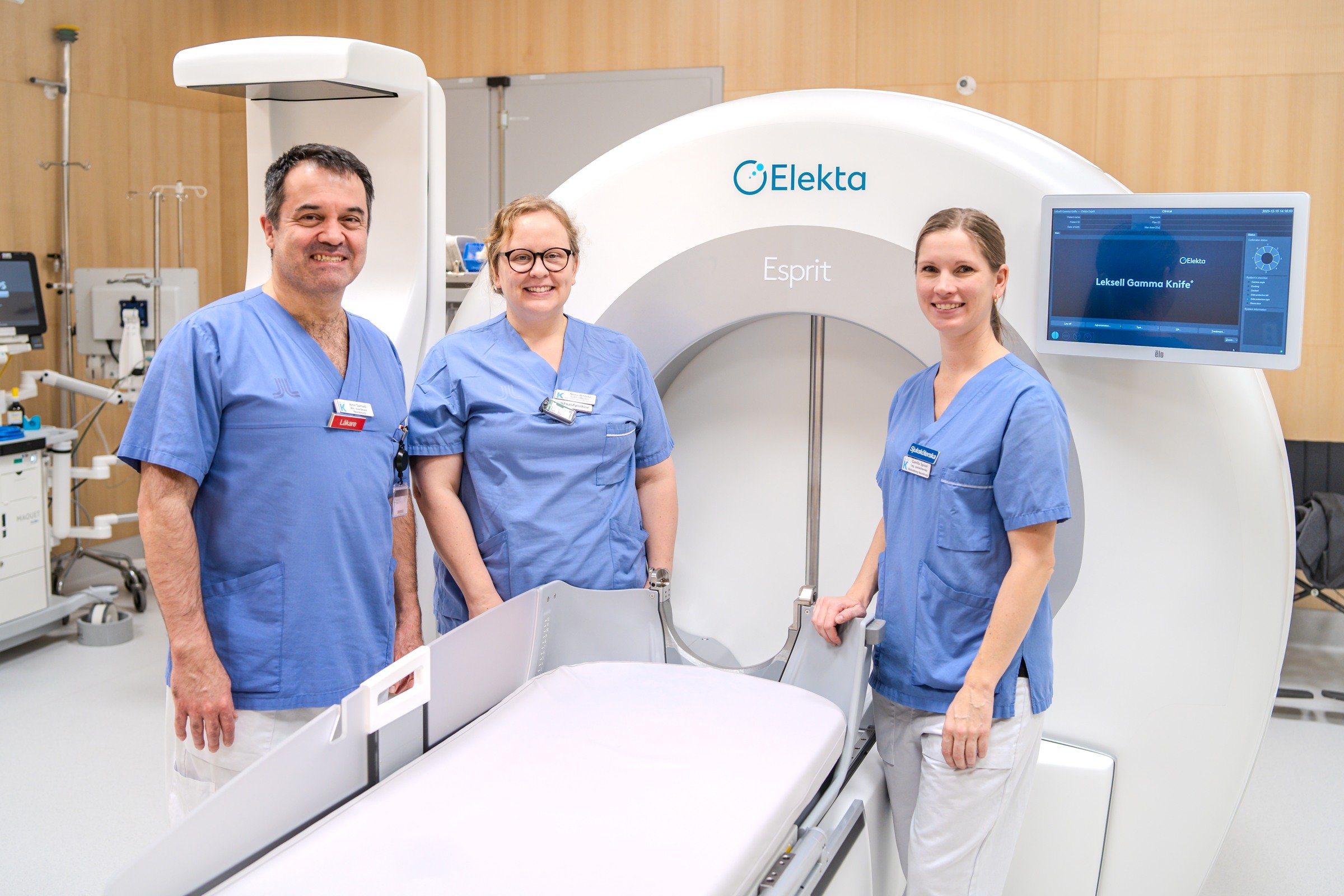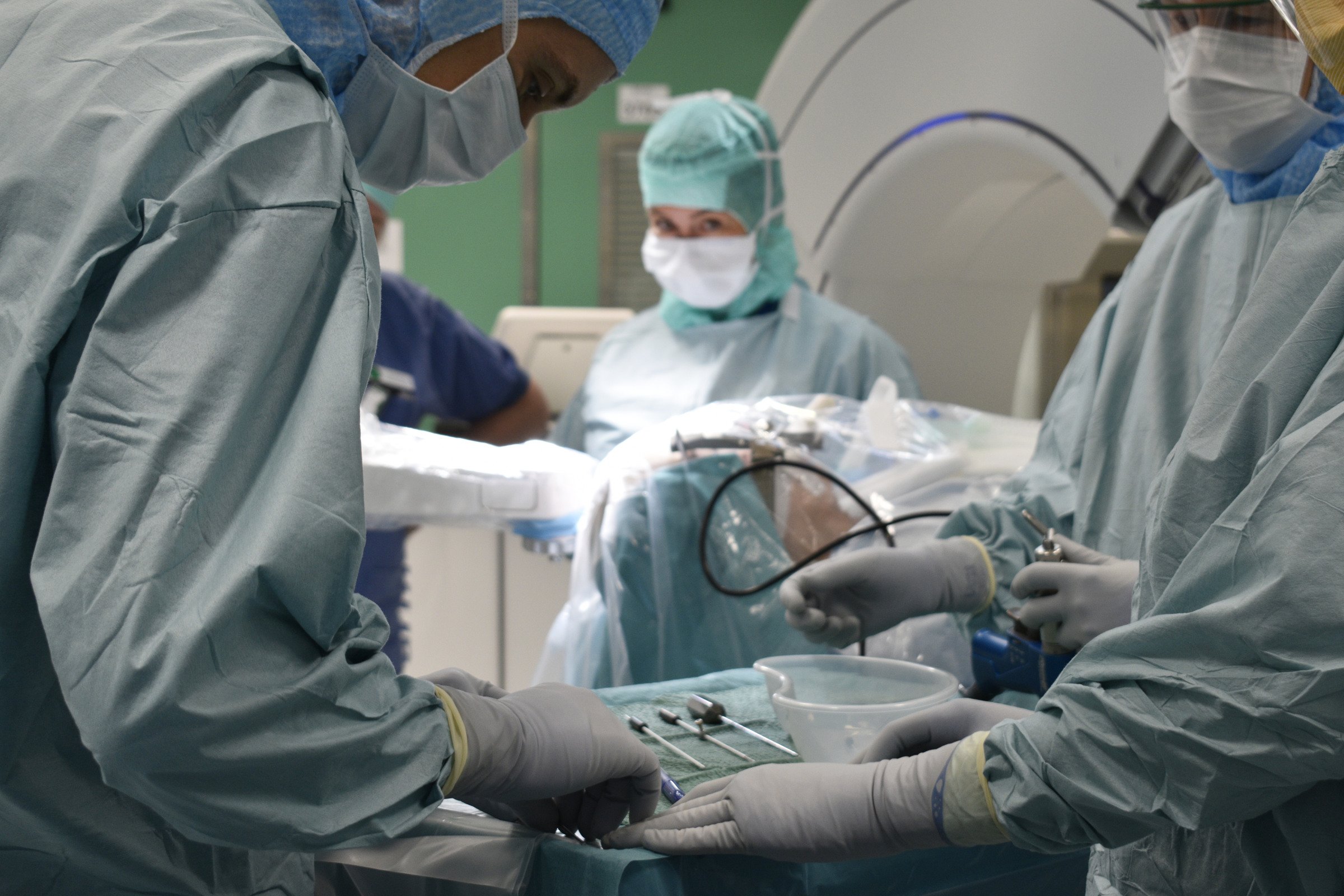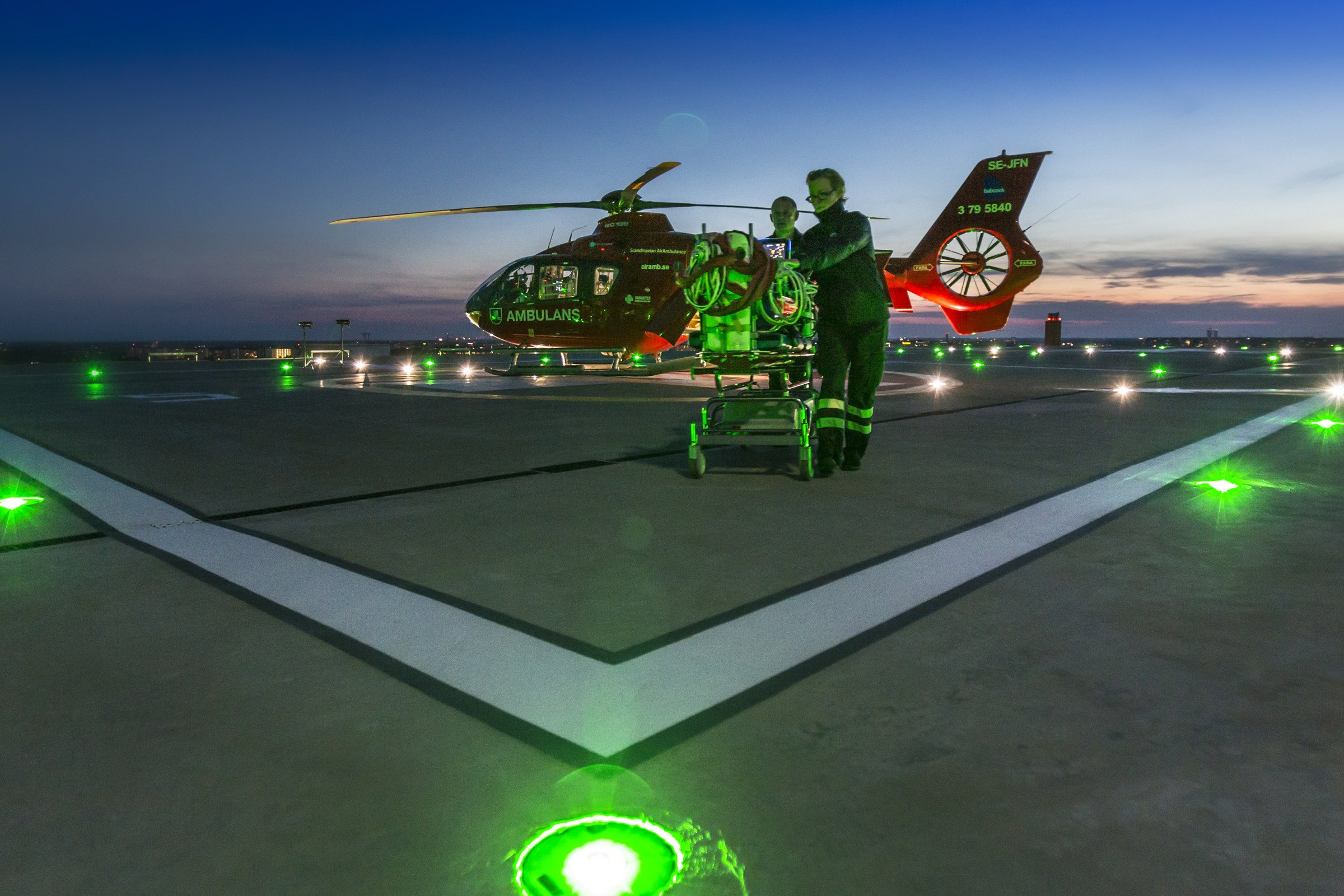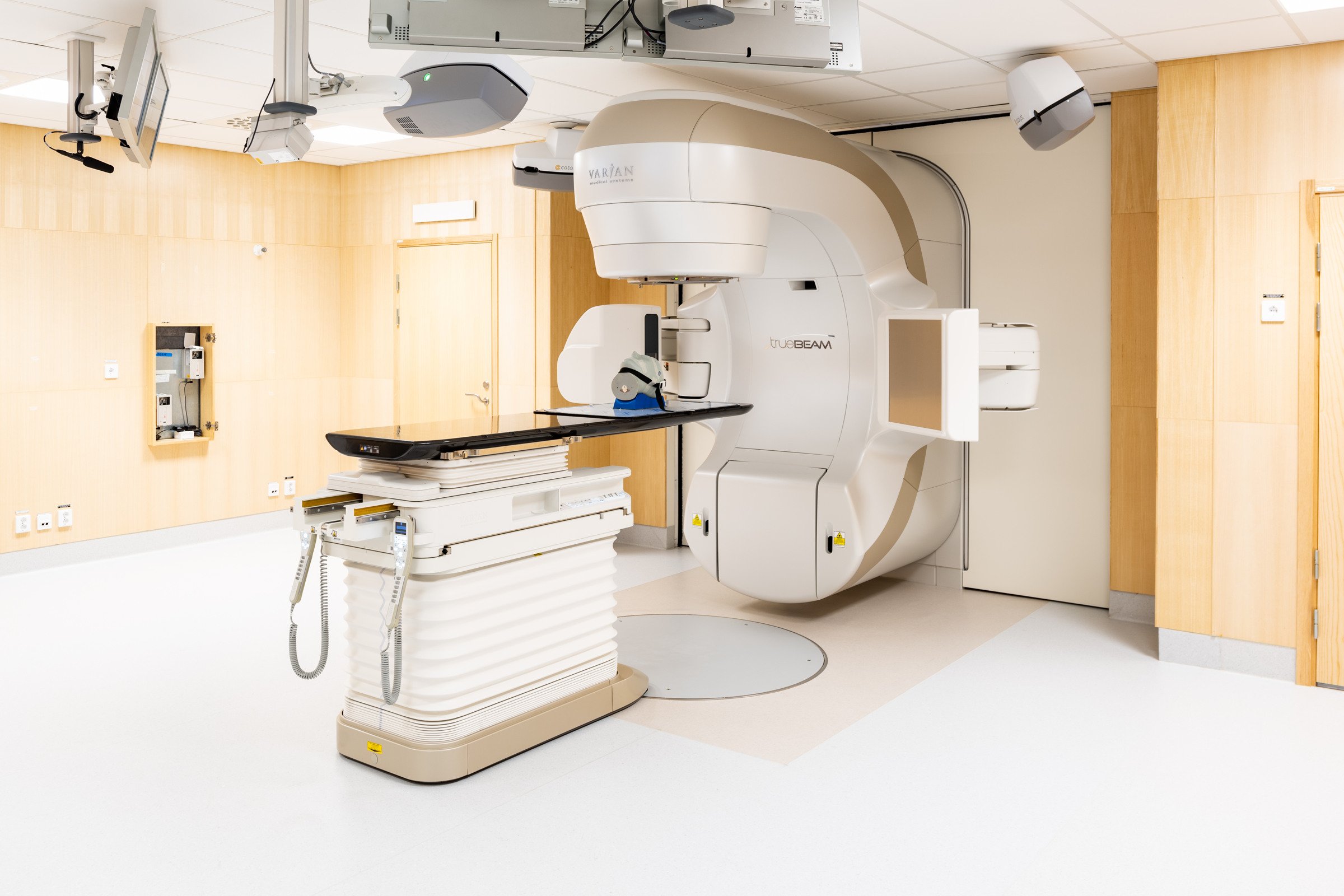Neurosurgery
Neurosurgery is the medical specialty concerned with diagnosing and treating patients with injuries to or diseases/disorders of the brain, spinal cord, and peripheral nerves.
Karolinska University Hospital provides world-class neurosurgery and hospital care within the entire neurosurgical field. Our neurosurgery clinic has a proud history of groundbreaking inventions, such as the Gamma Knife. The clinic was established in 1932 by Professor Herbert Olivecrona – a pioneer in modern neurosurgery.
Today, we offer advanced neurosurgical procedures for a wide range of neurological conditions in both adult and pediatric patients from all over the world. Our clinic serves a population of 2.5 million people, and about 3,000 surgical procedures are performed yearly, of which one out of three are emergency procedures related to traumatic brain and spinal cord injuries, vascular emergencies, and hydrocephalus. Three staff neurosurgeons are on-call to cover emergency services at all hours every day of the year.
We have 21 academic neurosurgeons dedicated to different sub-specialties, including epilepsy surgery, spinal surgery, neurovascular surgery, functional neurosurgery, and pediatric neurosurgery. All consultant neurosurgeons are research clinicians affiliated with the Karolinska Institute. Surgical interventions for conditions such as neurotrauma, brain tumors, and vascular disorders are constantly being refined. Cutting-edge translational and clinical research are conducted with a focus on augmented-reality navigation for spine surgery, robot-assisted stereo electroencephalography (SEEG) for epilepsy, targeted delivery of neurotrophic factors to the brain for the treatment of Alzheimer’s or Parkinson’s disease, or traumatic spinal cord injuries.
Gamma Knife Treatment
After developing the concept of non-invasive radiosurgery, Professor Lars Leksell, and Radiobiologist Börje Larsson invented the Gamma Knife, a ground-breaking neurosurgical technology used to treat various conditions in the brain, such as brain tumors, vascular malformations, trigeminal neuralgia, and other conditions that are otherwise difficult to treat. Gamma Knife surgery is used where traditional brain surgery is not an option. It does not require a surgical incision, thereby avoiding surgical or anesthesiological complications.
Today, the neurosurgical service at Karolinska covers the entire neurosurgical field, including the Leksell Gamma Knife. We use the ultra-modern version of the Gamma Knife, which is a very sensitive radiosurgery device with precise technology.
Areas for diagnosis and treatments within neurosurgery
The Herbert Olivecrona Award
We have an extensive national and international collaboration network within advanced neurosurgical procedures, research, and education. Each year since 1976, the department honors an international neurosurgeon for their contributions to brain or spinal cord surgery and/or research. The celebration of the Herbert Olivecrona Award includes an invitation to deliver the Olivecrona Lecture at the Olivecrona Symposium in December each year at Karolinska University Hospital. The laureate receives the Olivecrona Medal and Diploma at an award ceremony following the symposium.
Other conditions treated



